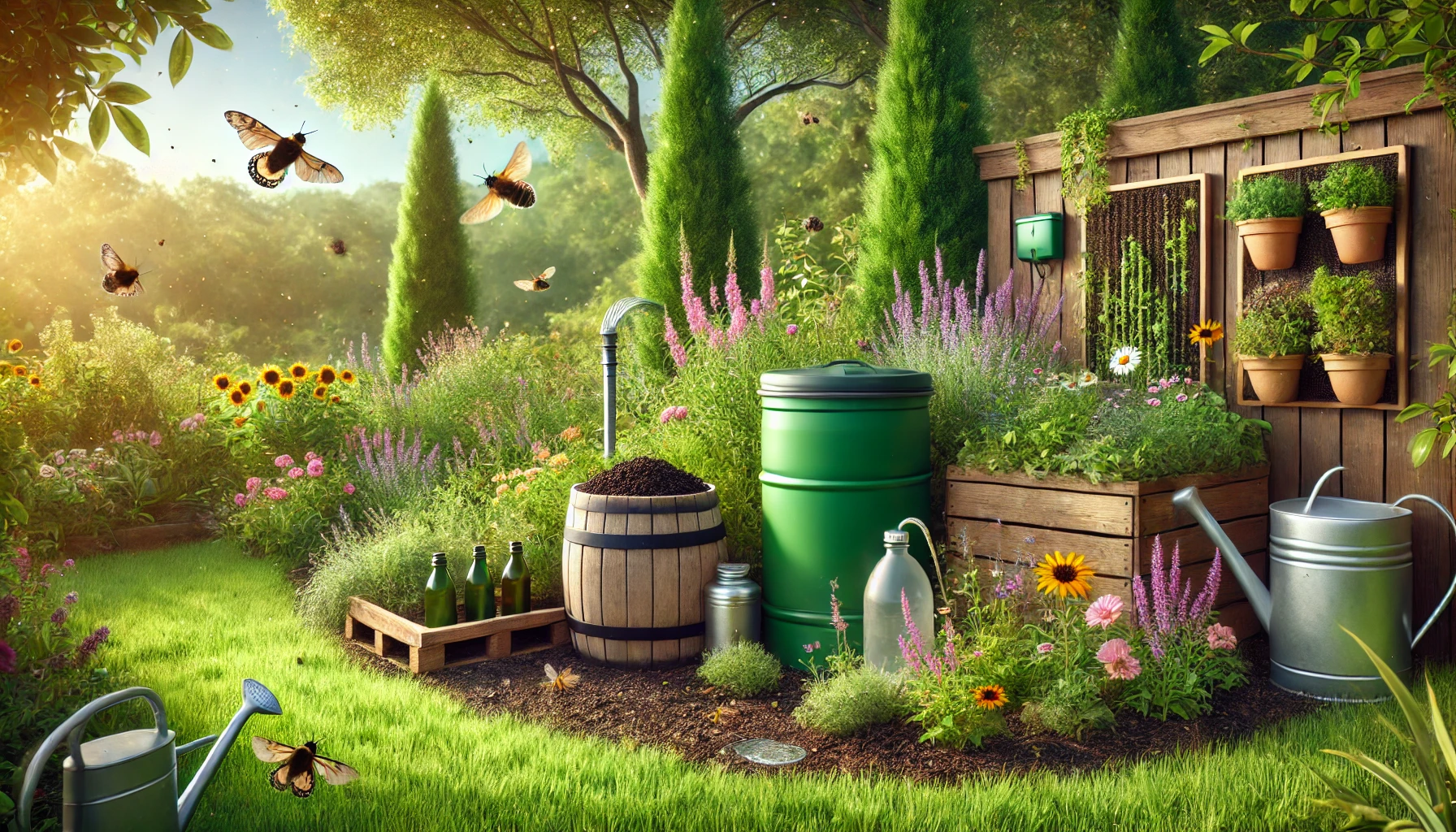Sustainable gardening is an eco-friendly approach that benefits both your garden and the planet. By using mindful practices, you can reduce waste, conserve resources, and create a thriving green space. Here are practical tips to make your gardening efforts more sustainable while still achieving a lush, beautiful garden.
Why Choose Sustainable Gardening?
Sustainable gardening has numerous advantages:
- Environmental benefits: It reduces your carbon footprint and supports biodiversity.
- Cost-effective: Saves money by minimizing waste and reusing resources.
- Healthier gardens: Promotes the growth of plants without harmful chemicals.
Whether you’re a seasoned gardener or a beginner, these tips will help you contribute positively to the environment.
1. Composting: Nature’s Recycling System
What is composting?
Composting turns organic waste like kitchen scraps, leaves, and grass clippings into nutrient-rich soil. It’s a natural way to recycle and enrich your garden.
How to start composting:
- Create a compost bin in your backyard or use a compost tumbler.
- Add a mix of green (vegetable peels, coffee grounds) and brown materials (dry leaves, cardboard).
- Avoid adding meat, dairy, or oily foods, as these attract pests.
2. Use Native Plants
Native plants are naturally adapted to your local environment, requiring less water, fertilizer, and care. They also attract beneficial pollinators like bees and butterflies, fostering biodiversity in your garden.
Examples of native plants:
Research plants that thrive in your region’s climate and soil. Popular examples include wildflowers, local grasses, and indigenous shrubs.
3. Practice Water Conservation
Water is a precious resource, and conserving it is a vital part of sustainable gardening.
- Collect rainwater: Use a rain barrel to capture water from your roof.
- Drip irrigation: Install a drip irrigation system to deliver water directly to plant roots.
- Mulching: Cover soil with organic mulch to retain moisture and reduce evaporation.
4. Avoid Chemical Pesticides and Fertilizers
Chemical products can harm beneficial insects, soil health, and water systems. Instead:
- Opt for organic fertilizers: Use compost, bone meal, or fish emulsion to enrich the soil.
- Natural pest control: Introduce ladybugs or use neem oil to combat pests safely.
5. Reduce, Reuse, Recycle
Gardening offers countless opportunities to repurpose materials:
- Reuse containers: Turn old jars, buckets, or cans into planters.
- Recycle garden waste: Turn pruned branches into mulch.
- Upcycle tools: Repurpose household items, like using spoons as plant markers.
6. Grow Your Own Food
Cultivating fruits, vegetables, and herbs reduces your reliance on store-bought produce, cutting down on packaging waste and carbon emissions from transportation. Start with easy crops like lettuce, tomatoes, and cucumbers.
7. Support Pollinators
Pollinators like bees, butterflies, and hummingbirds are essential for plant reproduction.
- Plant flowering species that bloom throughout the year.
- Avoid using harmful pesticides that can damage pollinator populations.
- Create a water source like a shallow dish with stones for bees to rest on.
8. Embrace No-Till Gardening
Tilling disrupts soil structure and can lead to erosion. Instead, opt for no-till gardening by layering organic matter directly on the soil. This method improves soil health and reduces carbon emissions.
Creating a Greener Future
Sustainable gardening is more than just a trend—it’s a way to protect the planet while enjoying the beauty of nature. By implementing these practices, you’re not only helping your garden flourish but also contributing to a healthier environment.
Start small, make mindful choices, and watch as your garden thrives in harmony with nature.
